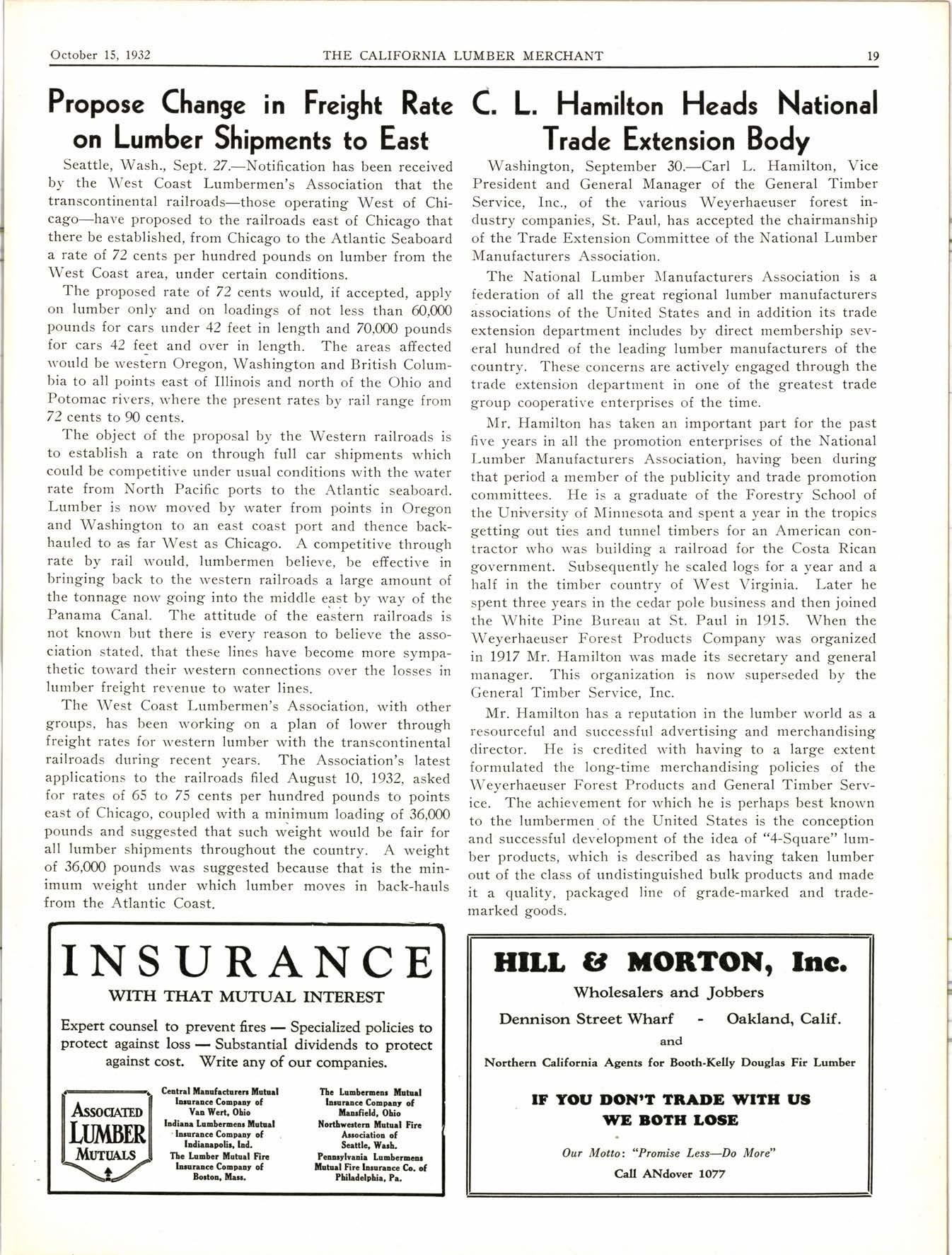
1 minute read
Propose Change in Freight Rate C. L. Hamilton Heads National on Lumber Shipments to East
Seattle, Wash., Sept. Z7.-Notification has been received by the West Coast Lumbermen's Association that the transcontinental railroads-those operating West of Chicago-have proposed to the railroads east of Chicago that there be established, from Chicago to the Atlantic Seaboard a rate oI 72 cents per hundred pounds on lumber from the West Coast area, under certain conditions.
The proposed rate of 72 cents would, if accepted, apply on lumber only and on loadings of not less than 60,000 pounds for cars under 42 f.eet in length and 70,000 pounds for cars 42 f.eet and over in length. The areas afiected 'w'ould be west-ern Oregon, Washington and British Columbia to all points east of Illinois and north of the Ohio and Potomac rivers, lvhere the present rates by rail range from 72 cents to 90 cents.
The object of the proposal by the \Mestern railroads is to establish a rate on through full car shipments which could be competitive under usual conditions with the water rate from North Pacific ports to the Atlantic seaboard. Lumber is now moved by water from points in Oregon and Washington to an east coast port and thence backhauled to as far West as Chicago. A competitive through rate by rail would, lumbermen believe, be effective in bringing back to the rvestern railroads a large amount of the tonnage nor,v going into the middle east by way of the Panama Canal. The attitude of the eastern railroads is not kno.ivn but there is every reason to believe the association stated, that these lines have.become more sympathetic tovvard their western connections over the losses in lumber freight revenue to water lines.
The West Coast Lumbermen's Association, with other groups, has been rvorking on a plan of lower through freight rates for western lumber with the transcontinental railroads during recent years. The Association's latest applications to the railroads filed August 10, 1932, asked for rates of 65 to 75 cents per hundred pounds to points east of Chicago, coupled with a minimum loading of 36,000 pounds and suggested that such weight would be fair for all lumber shipments throughout the country. A weight of 36,000 pounds was suggested because that is the minimum weight under which lumber moves in back-hauls from the Atlantic Coast.










